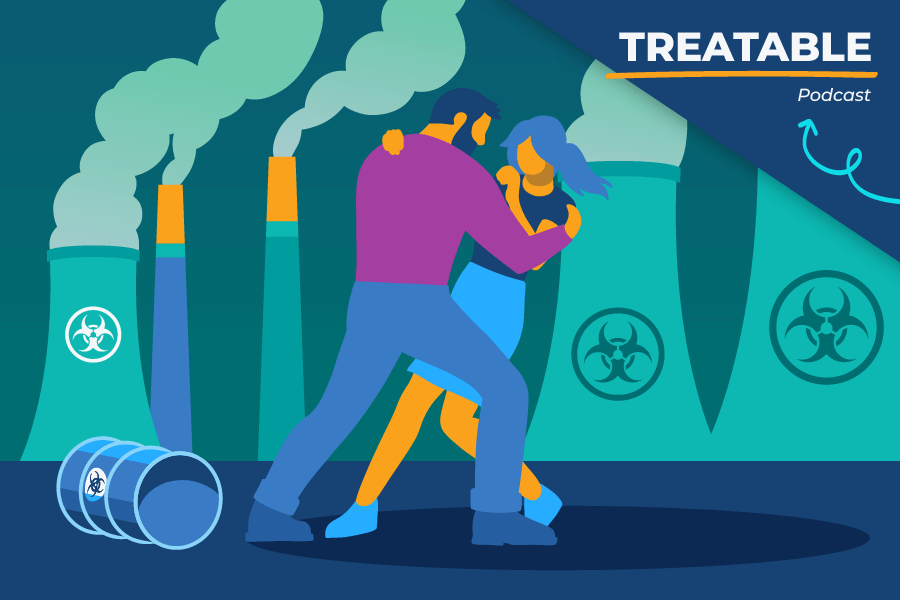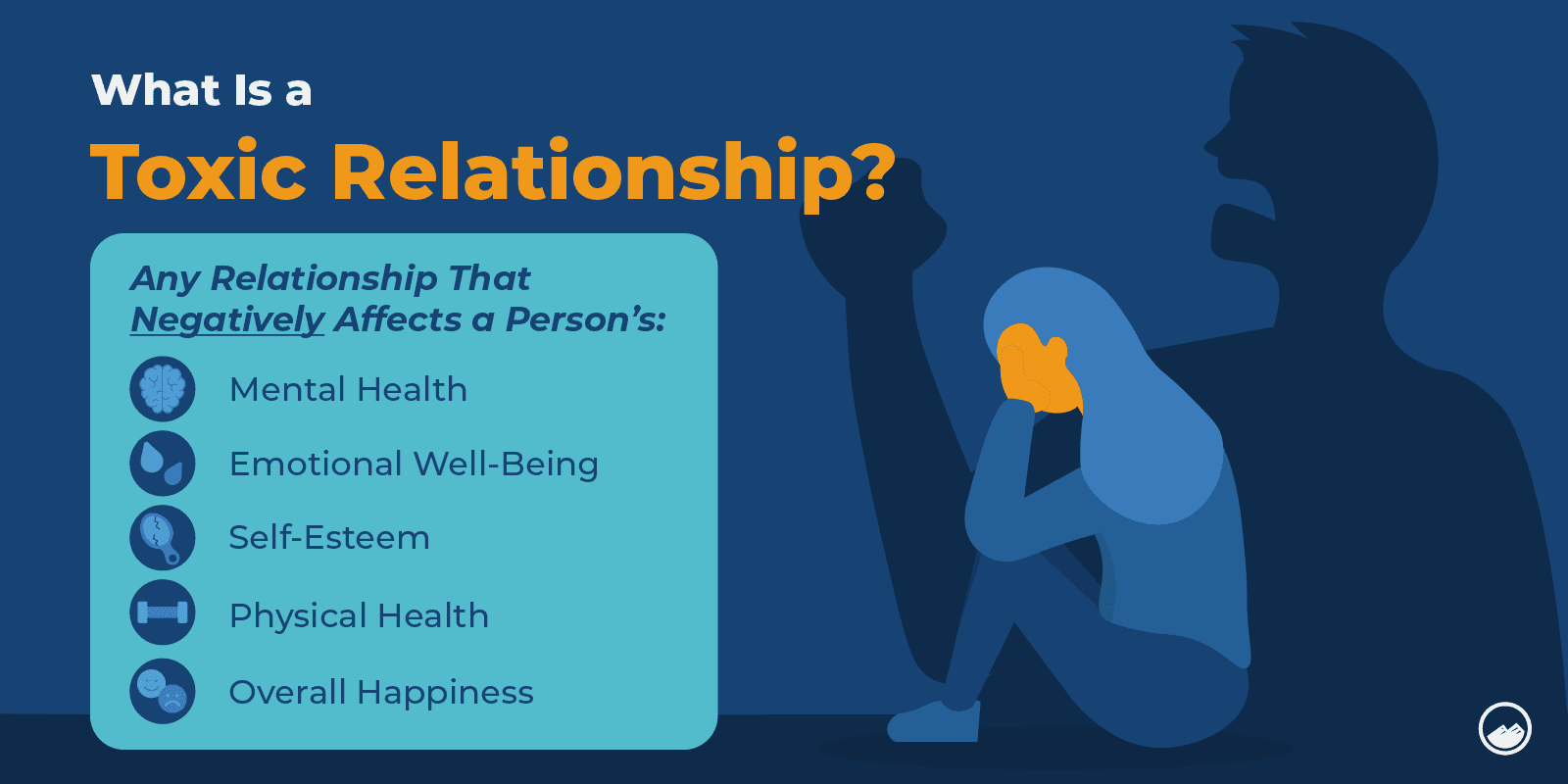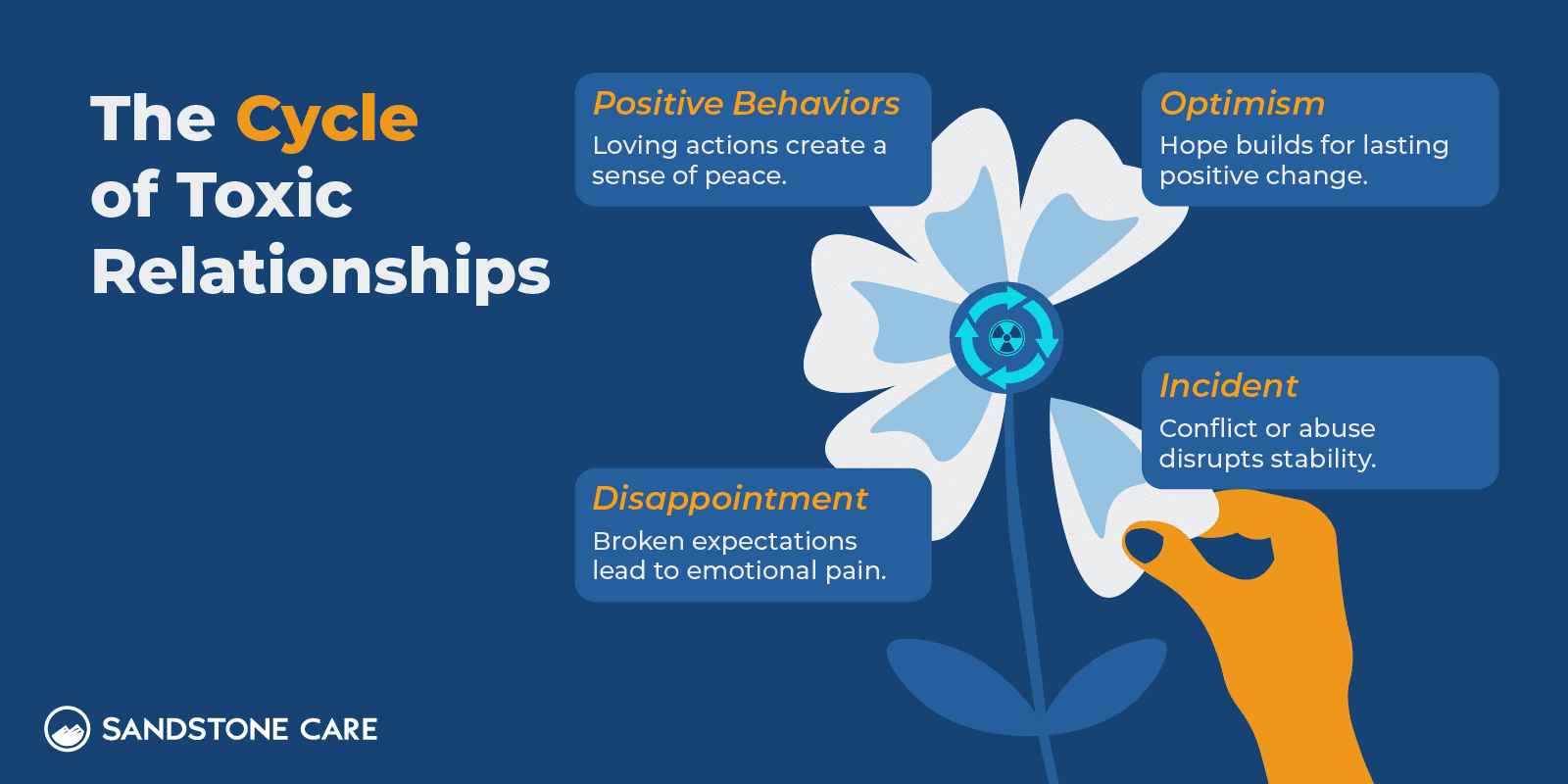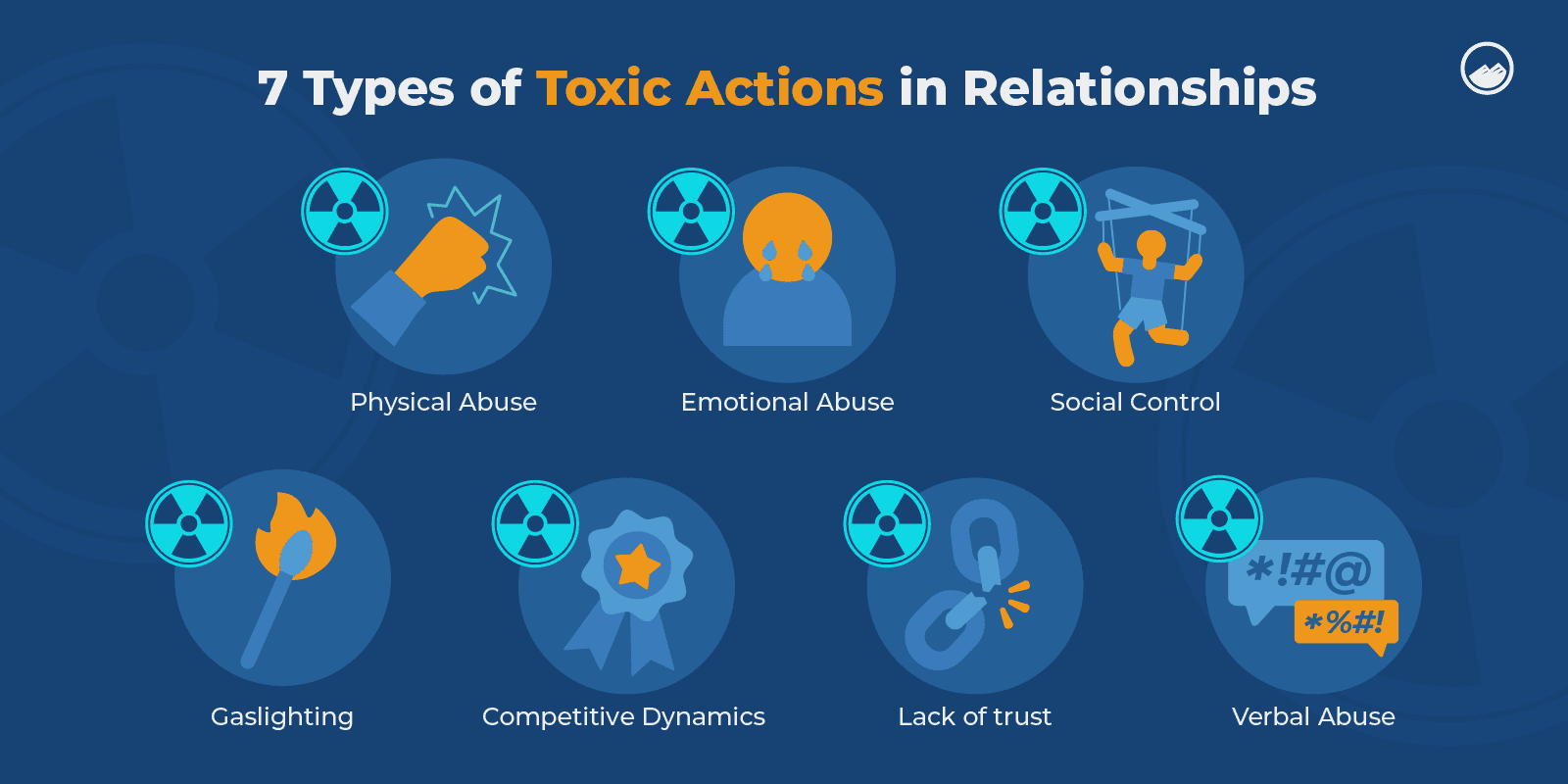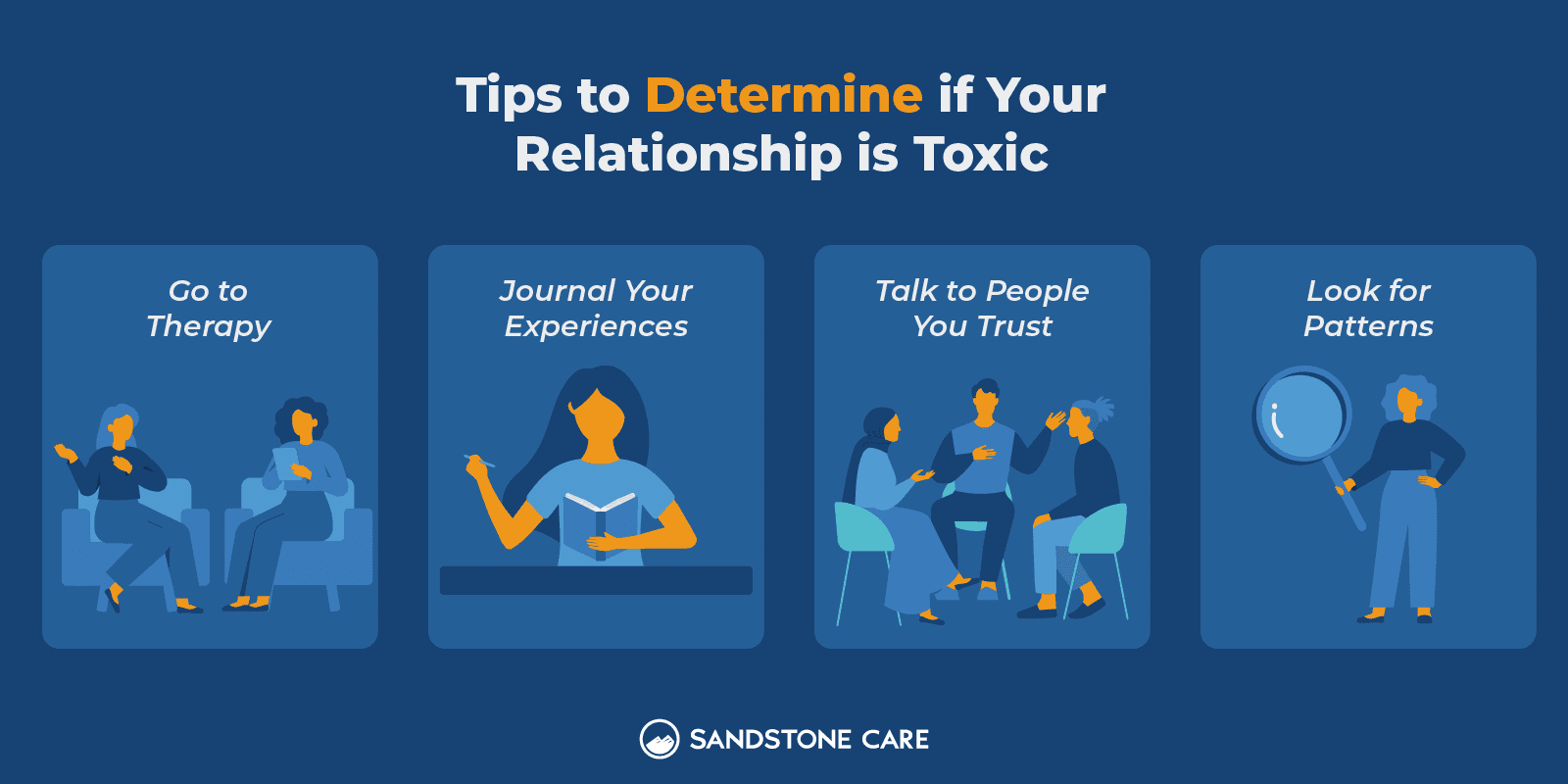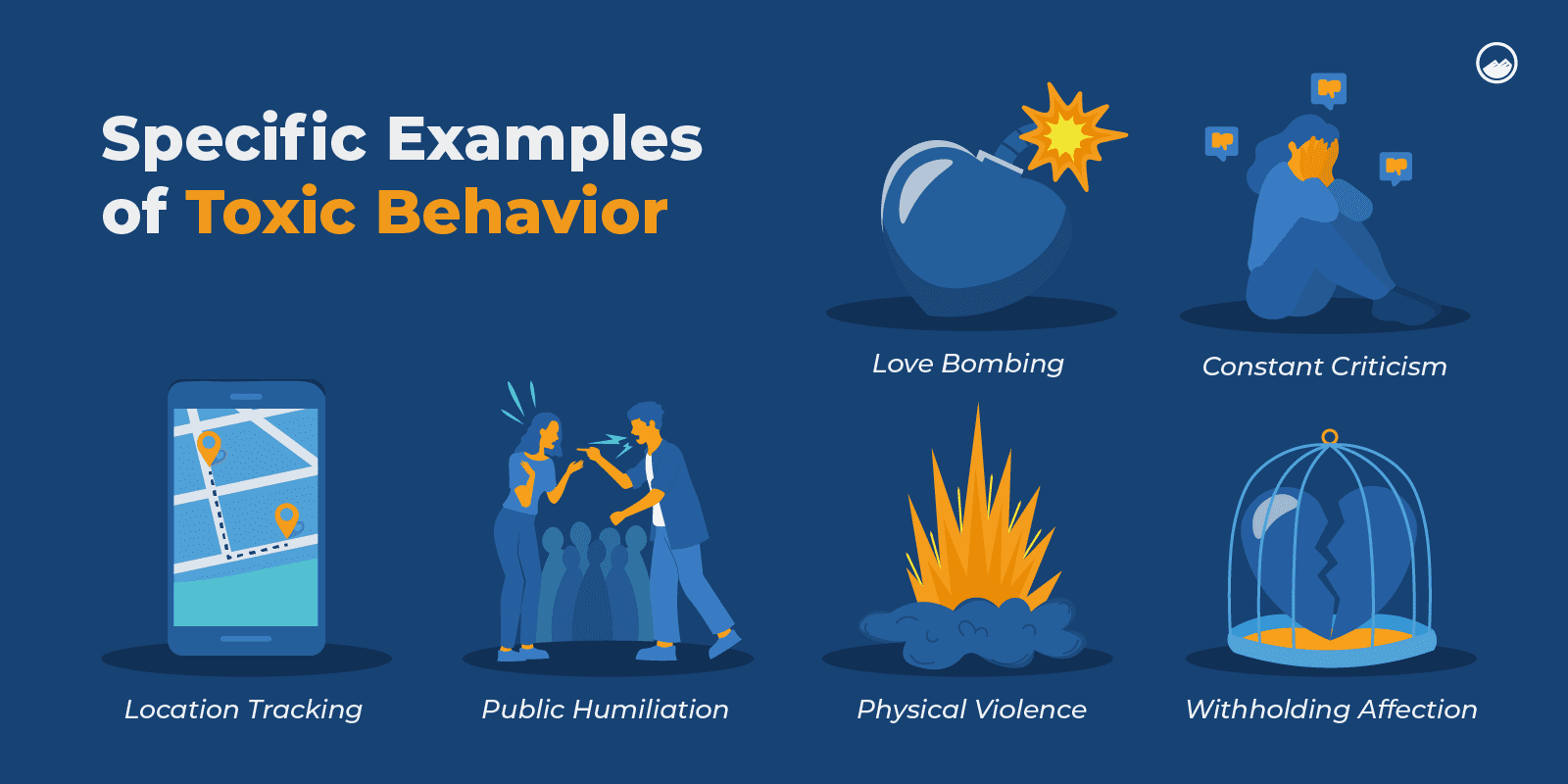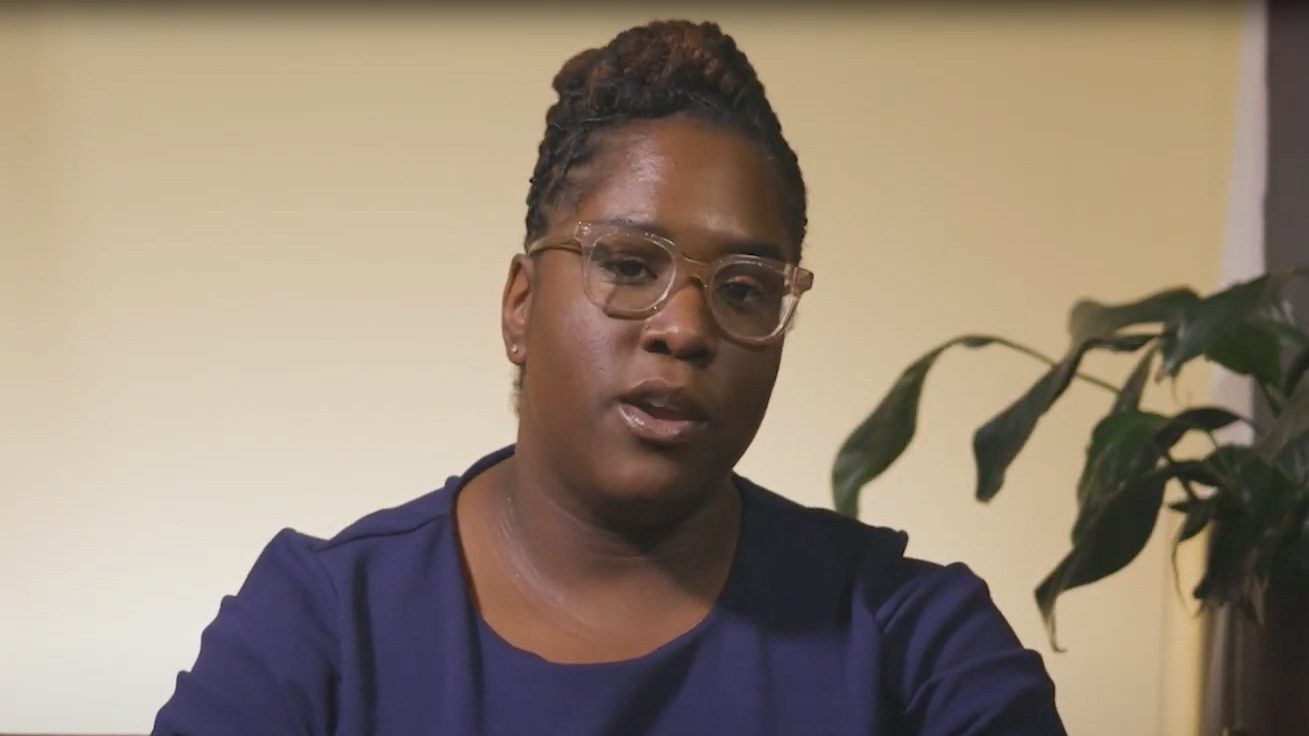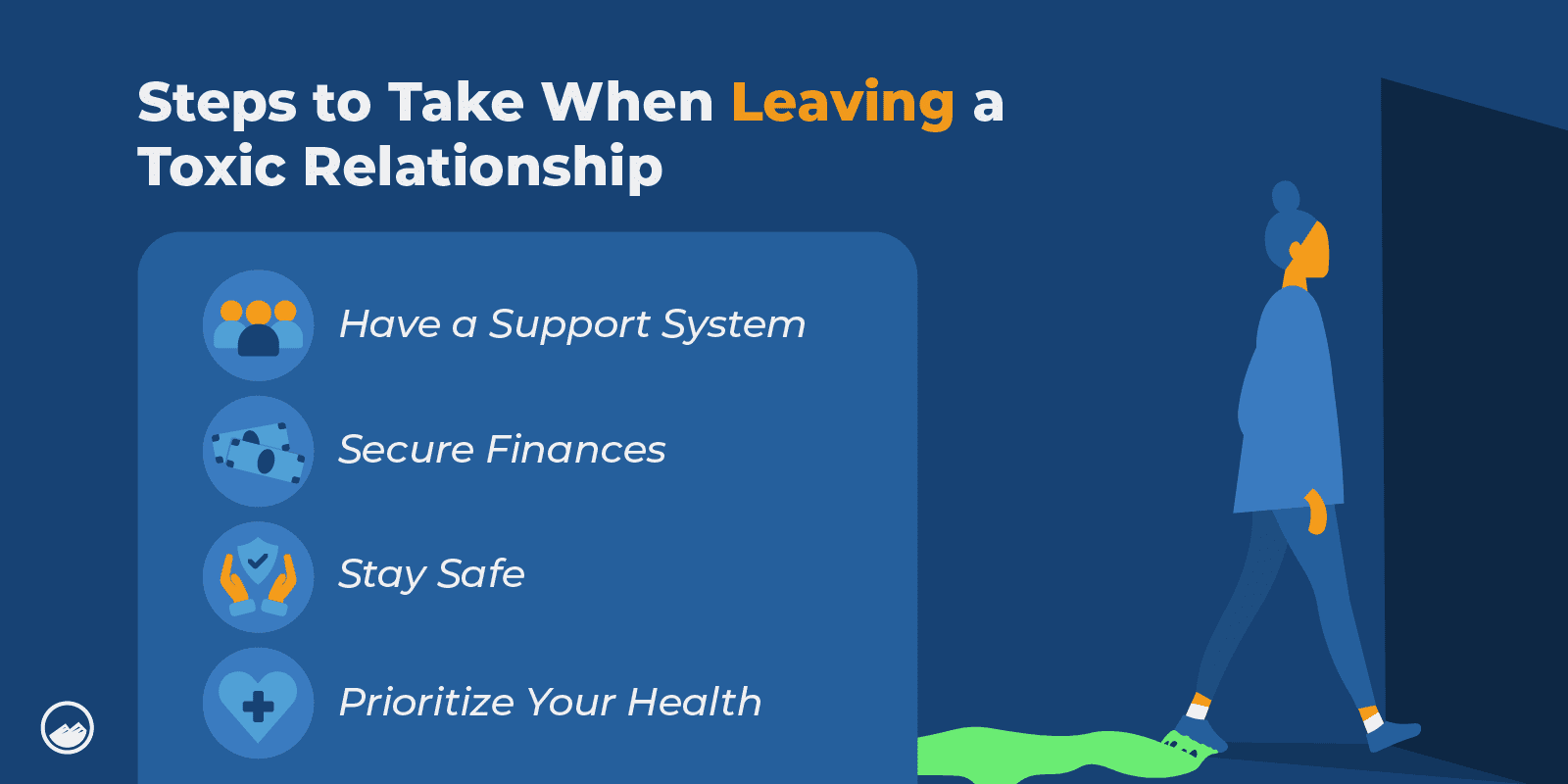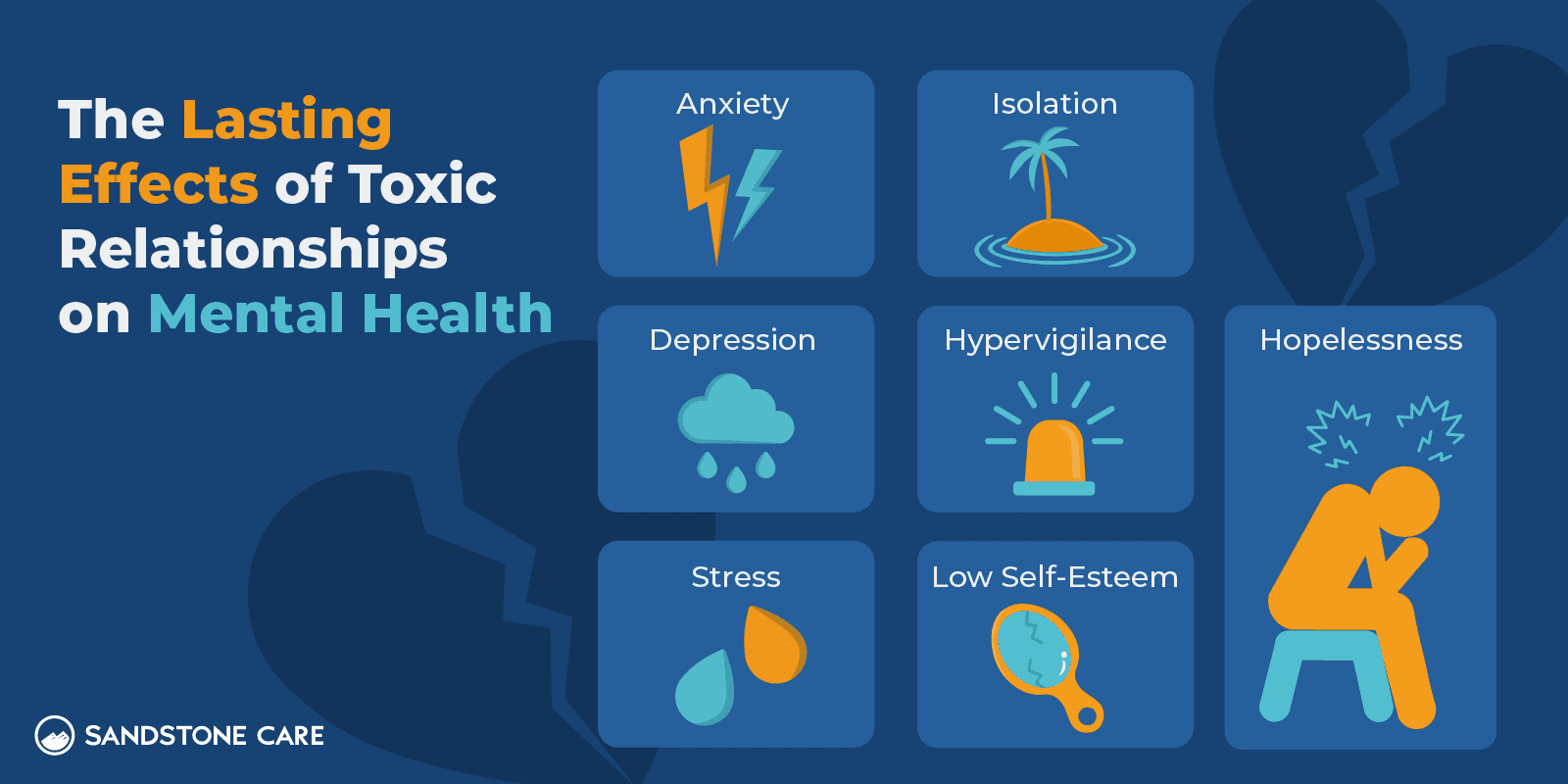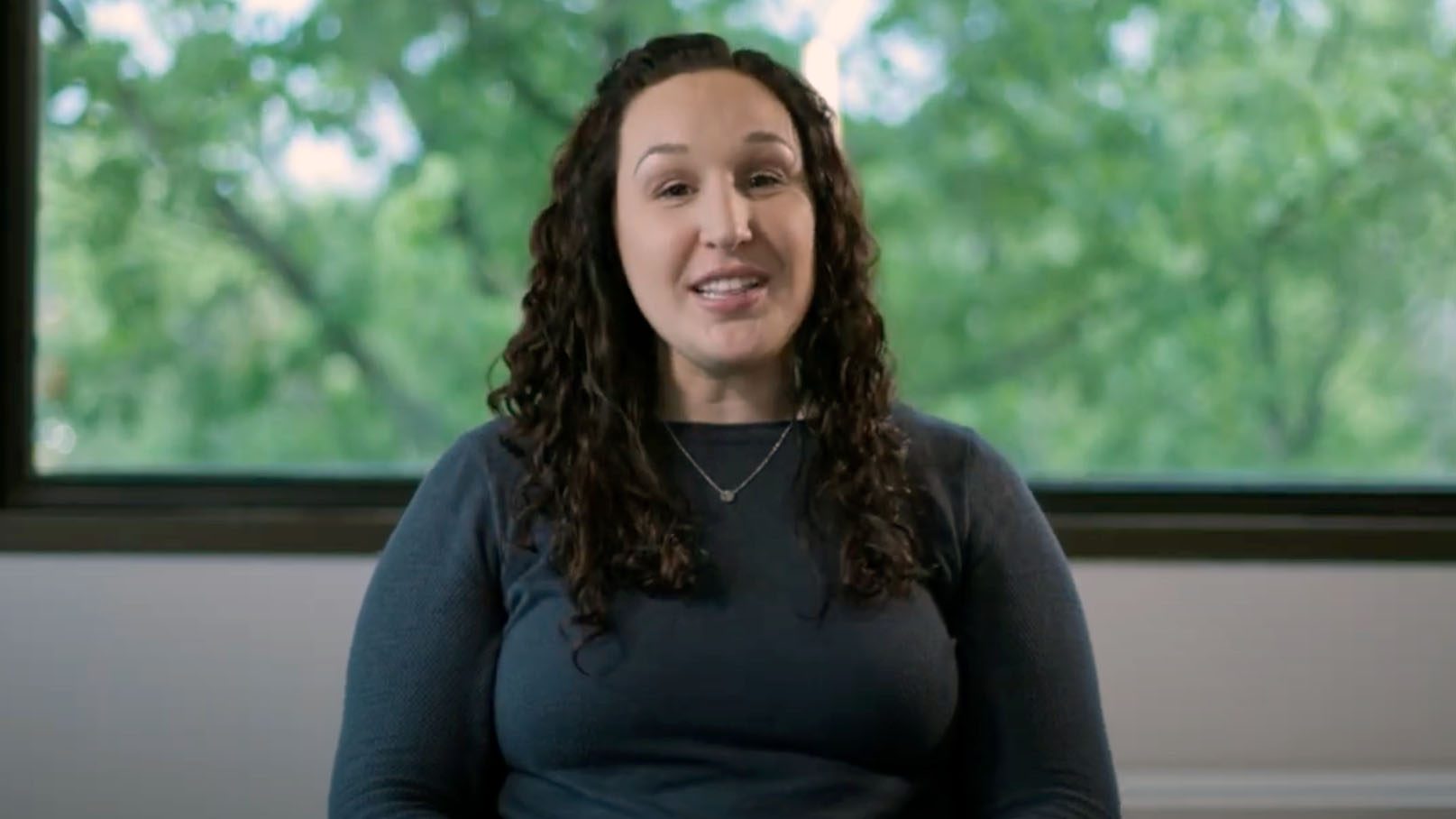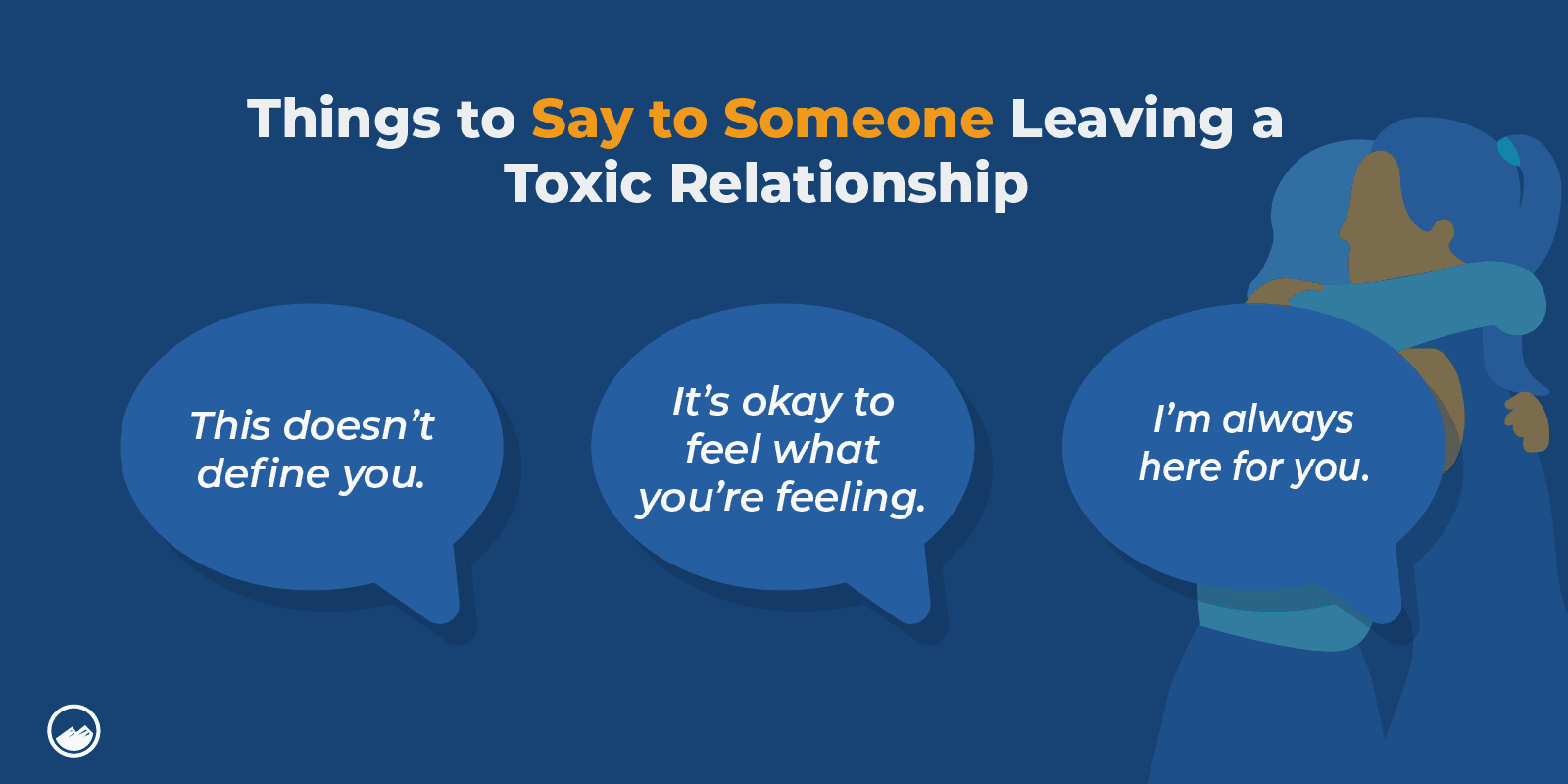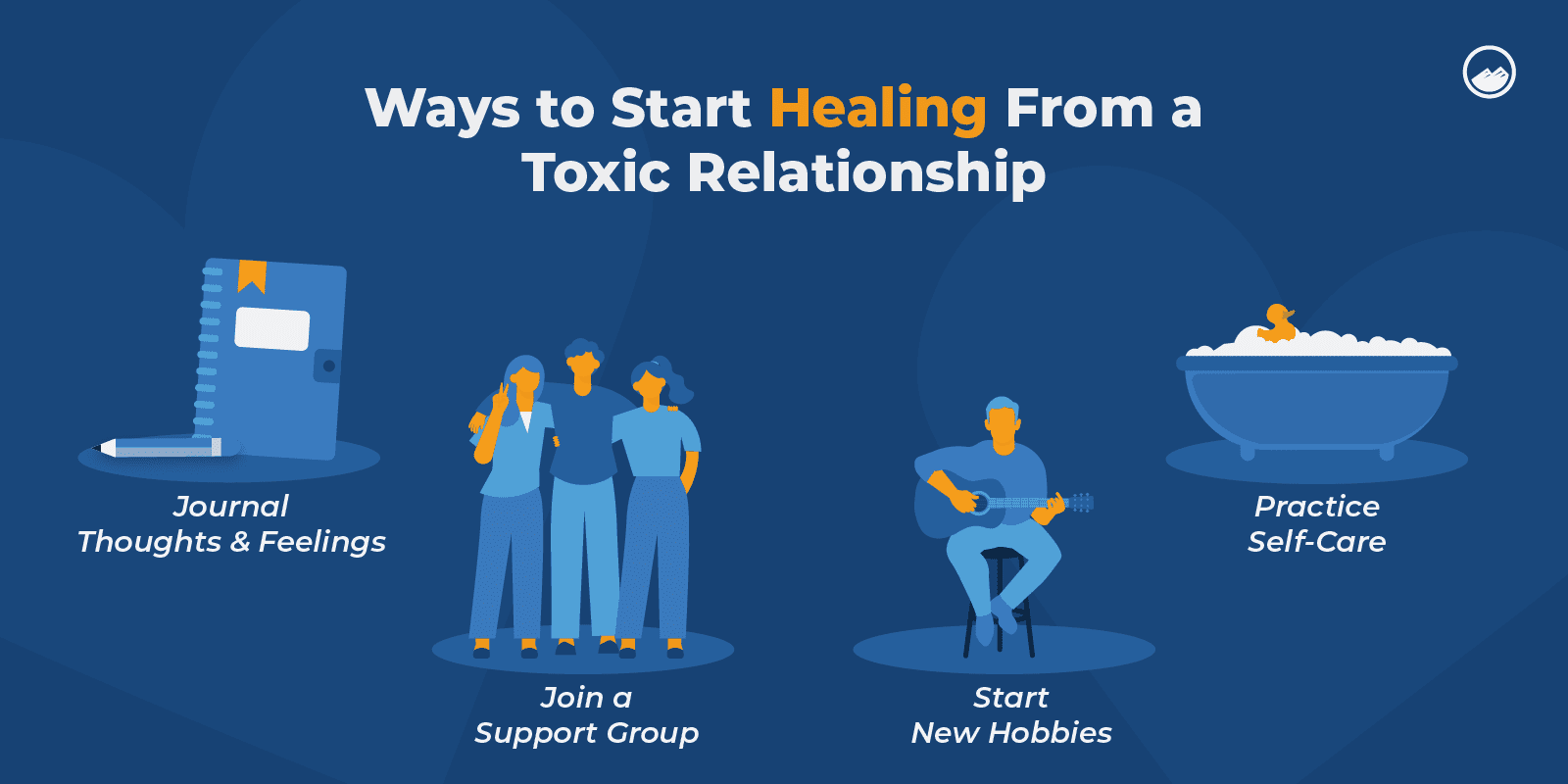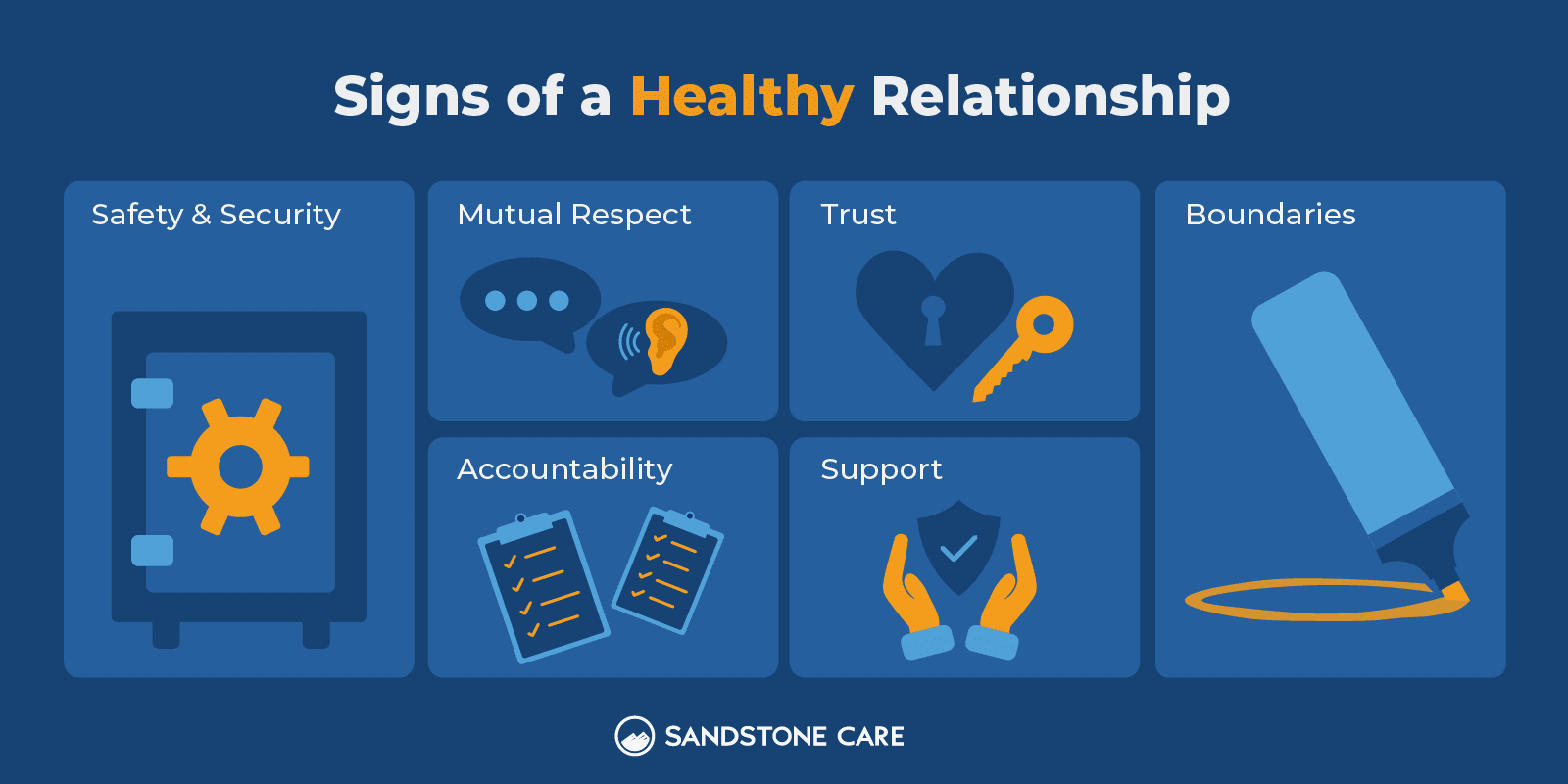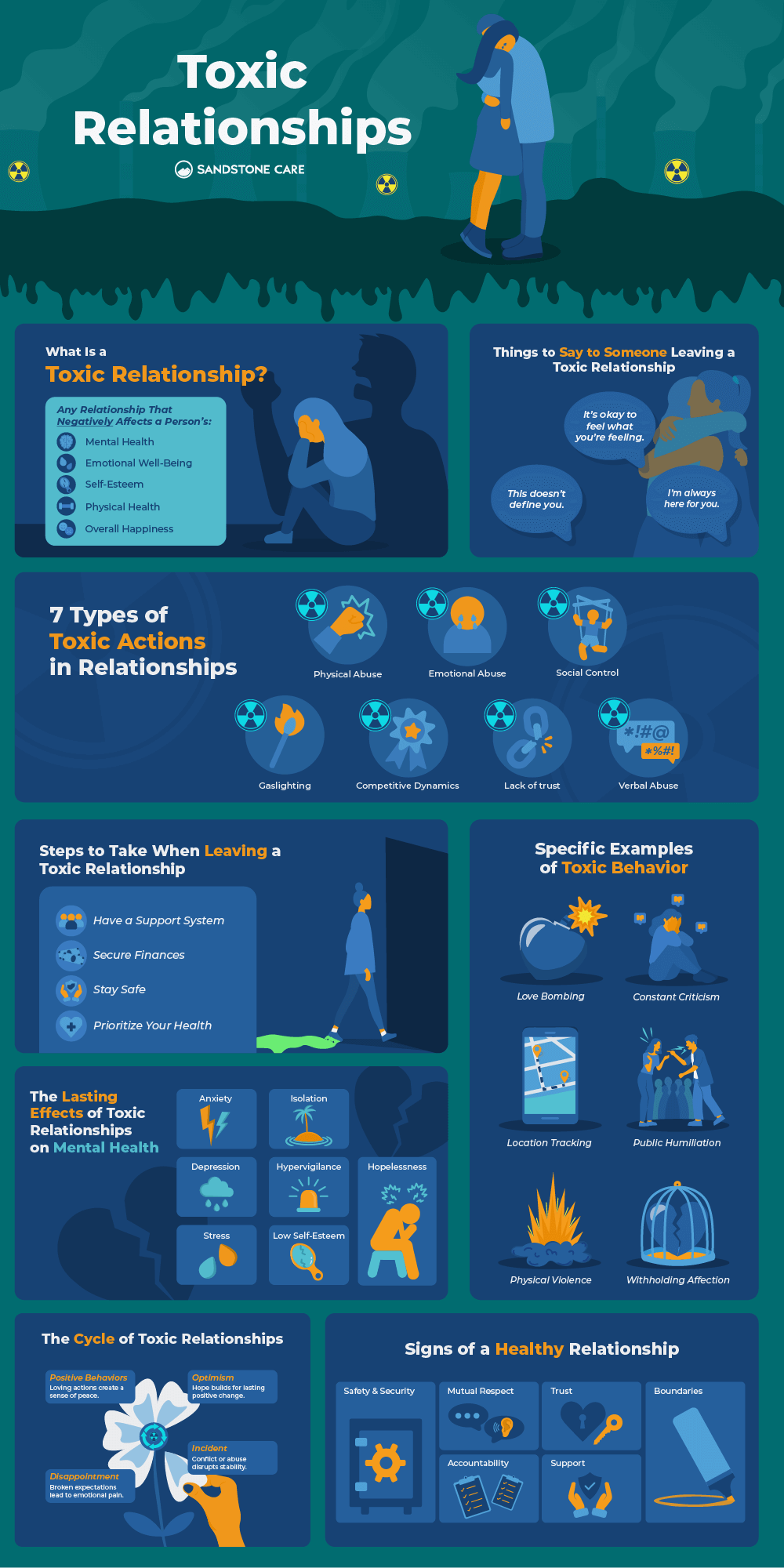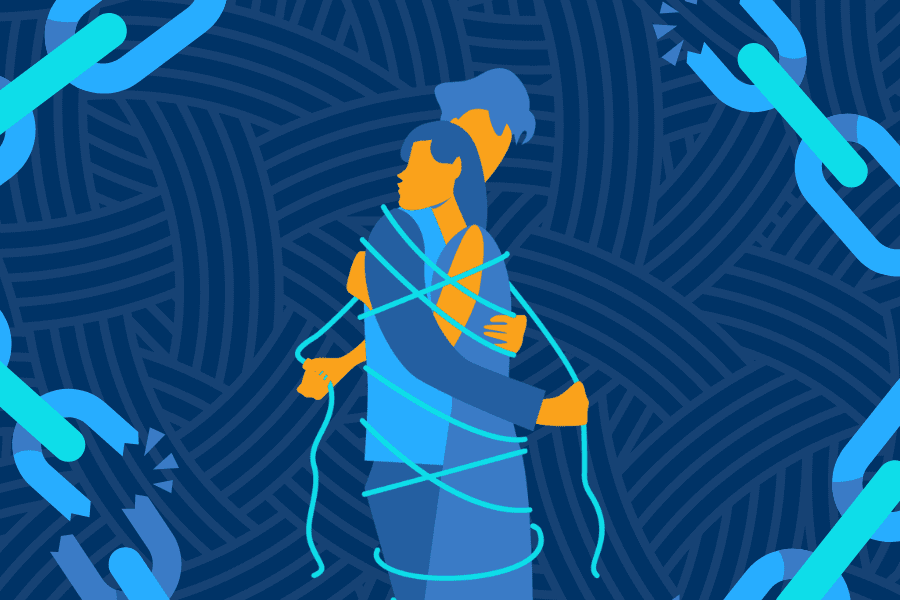Identifying and Healing from a Toxic Relationship
Toxic relationships are more prevalent than many may realize and take many forms. Identifying the elements of a toxic relationship is just the first step toward healing.
However, navigating and overcoming toxicity in a relationship is incredibly difficult, with professional support being necessary to challenge many of the lasting feelings, traumas, or other effects of toxic relationships.
What Is a Toxic Relationship?
A toxic relationship is any relationship that negatively affects the mental, emotional, or physical health of the partners.
Relationships with uneven or unhealthy dynamics that affect a person’s mental or emotional well-being, self-esteem, and more are all signs of toxic relationships.
While toxic relationships are most commonly thought of as romantic relationships with an intimate partner, toxicity can also be apparent in supposed close friends or coworkers.
Identifying these red flags can empower each person to recognize these dangers and work with mental health professionals to address and overcome their destructive effects.
Why Are Toxic Relationships Addictive?
Toxic relationships can be addictive due to the cycle of hope and disappointment that defines the interactions that the people in the relationship have with each other.
Intermittent positive behaviors, the familiarity and low self-esteem that keep individuals in the harmful dynamic, and the isolation and fear of abandonment can make leaving incredibly difficult.
Tactics like gaslighting, trauma dumping, and trauma bonding can cause victims to stay in harmful situations, even when they are suffering.
For some, a person’s partner may be controlling both inside and outside of these relationships, making it difficult to get away from their influence. Controlling a person’s social life and behaviors or exhibiting control via financial powers can all be factors that make it difficult to get out of.
Others may feel as if they are “addicted” to these relationships due to feelings of codependency with a significant other, further making it difficult to let go of these relationships.
What Are the Types of Toxic Relationships?
Toxic relationships can occur in many different circumstances, and nobody is fully immune to finding themselves in a type of toxic relationship.
Understanding what type of relationship you are in can help you to find the right steps to either make the relationship healthier or to leave it if necessary.
Toxic relationships can take various forms; not all may be readily apparent.
Some types of toxic relationships include:
- Physical abuse
- Emotional abuse
- Socially controlling behaviors
- Gaslighting
- Competitive dynamics instead of supportive dynamics
- Lack of trust or healthy boundaries
- Verbal abuse, “negging,” or name calling
Toxic Relationship Signs
Knowing the warning signs for various forms of toxic relationships can empower those in these difficult situations to best tend to their health and distance themselves from these relationships before further damage can be done.
Whether an individual recognizes the signs of toxic relationships in their own life or the lives of a family member or loved one, knowing what to look for is the first step forward.
What Are the Early Signs of a Toxic Relationship?
Early signs of a toxic relationship include frequent insults, fighting often, and consistently disrespecting boundaries when they are set.
Identifying the signs of a toxic dynamic early can help you to break the cycle of emotional distress before they become overwhelming.
Some other early signs of a toxic relationship include:
- Using cruel or condescending language
- Being emotional unsupportive
- Approaching things competitively instead of as a team
- Disrespecting personal space
- Name calling or regular put-downs, even in joking contexts
- Love-bombing, especially after an argument
- Gaslighting
- Displaying physical violence or outbursts
- Using narcissist behaviors
- Attempting to control social behaviors or friend groups
An individual may also feel as if the atmosphere of a relationship is constantly strained or as if they have to “walk on eggshells” with their words and behaviors to not upset a partner.
How to Tell If Your Relationship Is Toxic
It can be difficult for those in a toxic relationship to recognize it, however, talking to outside sources, reaching out to trusted loved ones, and writing down your experiences can help you to determine if you are in an unhealthy position.
Some individuals may make excuses for their partner or may feel as if any toxic behaviors are their fault, either due to persistent gaslighting, low self-esteem, or trauma.
Talking to an external source can be the driving change in getting an objective view of the relationship, feelings, and behaviors.
While not all toxic relationships are abusive, all abusive relationships are toxic, regardless of whether it is physical abuse, emotional abuse, sexual abuse, or any other form.
If you or someone you love is experiencing any of the behaviors listed above, please reach out to the National Domestic Violence Hotline for further support.
Can a Toxic Relationship Cause Anxiety?
Yes. Toxic relationships often cause pervasive feelings of anxiety.
They also commonly lead to the development of anxiety disorders and trauma, including anxiety disorders like post-traumatic stress disorder (PTSD).
Identifying Toxic Behavior in a Relationship
Toxic behavior can take many forms. Recognizing any form of toxic behavior can inform the best path to caring for personal needs, goals, and healing.
How Does a Toxic Person Behave in a Relationship?
In a relationship, a toxic person may constantly try to exhibit control over another, furthering an uneven power dynamic.
Dismissing others’ opinions, compromising personal spaces, distrust, pervasive jealousy, and other controlling behaviors can all be common in toxic relationships.
For example, a toxic individual may track another person during their day via phone location or seem to control which social events or friends a person can spend time with.
While each situation is unique, there are some consistent signs of toxicity that each person should remain vigilant of for their health.
A toxic individual may also react drastically when this perceived power dynamic is challenged, either with angry outbursts, violence, verbal abuse and put-downs, name calling, gaslighting, and more.
Such individuals will also commonly engage in love-bombing, especially following potential arguments or when caught lying.
Love-bombing is showering a person with gifts, compliments, and other gifts to make another feel special or to reconcile their actions.
Why Do People Stay In Toxic Relationships?
People may stay in toxic relationships when they have become socially isolated from trusted friends or family members or have compromised self-esteem.
It can be difficult to feel like there is a loving world outside of the toxic relationship, leaving victims unsure of whether or not they can find other relationships.
Manipulative and codependent relationships can also cause an individual to believe that if they leave a particular relationship, their partner may act irrationally or engage in self-destructive behaviors instead of staying together to prevent feeling at fault for their partner’s potential actions.
What to Do When You’re in a Toxic Relationship
If you have found yourself in a toxic relationship, consider reaching out to loved ones and trusted friends to ensure you have a support system beyond your relationship.
It’s also important to make your health your top priority.
Seek out therapists who specialize in helping people heal from toxic dynamics to help give you the skills you need to restore your sense of self.
If leaving is necessary, make sure to secure your finances and living situation as best you can, and make sure that you are safe as you begin to transition out of the relationship.
How to Unlearn Toxic Relationship Behavior
For many, toxicity in a relationship can feel normal, either due to their own past experiences or the relationships they witnessed throughout their childhood.
It can be challenging to overcome the effects and perspectives of a toxic relationship on one’s own. Working with dedicated professionals like those at Sandstone Care is essential to addressing the causes and behaviors stemming from a toxic relationship.
Effects of Toxic Relationships
Toxic relationships affect an individual both during the relationship and beyond.
The effects of a toxic relationship can eventually impact your health, your ability to reach your goals, and any future relationships that you may have later in life.
How Toxic Relationships Affect Your Mental Health
Toxic relationships have profound and lasting effects on a person’s mental health and can continue to inform a person’s mental health needs and challenges even after these relationships have ended.
Understanding the impacts of toxic relationships can help you to identify patterns in your mental health struggles and protect yourself from damaging situations that may arise in the future.
Some emotional effects of toxic relationships on a person’s mental health include:
- Anxiety
- Depression
- Emotional isolation
- Feelings of worthlessness, hopelessness, or helplessness
- Stress
- Compromised self-esteem
What Happens When You Stay in a Toxic Relationship for Too Long?
Those who remain in these difficult relationships can have their feelings of self-worth eroded over time.
They may also compromise freedoms or opinions, begin to harbor self-belittling beliefs and develop various mental health disorders.
It often takes many years to heal from the the traumas of physical, emotional, and sexual traumatic experiences.
How to Fix a Toxic Relationship
Some toxic relationships can be mended. However, while it is possible to address some toxicity in some relationships, others may not be worth repairing for a person’s health.
It is crucial to work with professionals to determine how to fix a relationship and whether to even attempt to fix it or simply break up for one’s health.
Can a Toxic Relationship Become Healthy?
Yes. For some, it is possible to address a toxic relationship and transform these relationships into something healthy, supportive, and positive.
However, it is difficult. Both people will have to be completely open to and prepared to make changes, confront difficult challenges, and more.
If only one person is interested in changing a relationship’s dynamic, turning a toxic relationship into a positive one can be nearly impossible.
How to Turn a Toxic Relationship into a Healthy One
In order to turn a toxic relationship into a healthy one, many people find that it is necessary to seek professional help to address and transform toxic dynamics.
Mental health support and professional care can help partners to practice new skills of compassion and communication.
Some ways that professional help can empower couples to address toxicity in a relationship include:
- Developing communication strategies
- Exploring personal boundaries and creating new healthy boundaries
- Establish self-care routines
- Address accountability for actions and mistakes
- Acknowledge toxicity and its effects
- Explore alternate perspectives
- Introduce regular positivity
- Explore potentially traumatic experiences and their effects in a safe environment.
How to Leave a Toxic Relationship
While some toxic relationships can be repaired and transformed into something supportive, loving, and healthy, not all will.
Knowing how and when to leave a toxic relationship is necessary for prioritizing personal health and essential needs.
How Do I Get Out of a Toxic Relationship
Getting out of a toxic relationship can be extraordinarily difficult, especially in cases of abuse where an individual may fear for their safety or well-being if they indicate a desire to end the relationship.
However, there are strategies that those in toxic relationships can use to make this process easier to handle.
Some strategies to help you exit a toxic relationship safely include:
- Talking to professionals or contacting the National Domestic Violence Hotline to create a plan
- Have a place to stay already picked out, either with family or a trusted friend
- Bring a friend or family member to the break up for additional feelings of safety
- Change phone numbers or other contact information, or block toxic individuals on social media
- Work with professionals to challenge feelings of guilt and doubt or to avoid self-blame and contextualize traumatic experiences to validate the decision to break up
What to Say When Ending a Toxic Relationship
When ending a toxic relationship, be clear and concise to avoid misunderstandings.
It is important to remember that the goal of this conversation is to end the relationship, not open a new discourse about it where the victim may be manipulated into staying.
A partner’s emotional well-being and behaviors resulting from the breakup are also not a person’s responsibility. While some may choose to explain specific abusive behaviors, an individual is not required to provide information or justify themselves, with simple and clear breakups like “I am not happy, and I am ending this” is perfectly sufficient.
Bringing family members or trusted friends may also be necessary to prevent angry outbursts and provide support during this time.
How to Leave a Toxic Relationship When You Live Together
Ending a relationship while still living together is difficult and should be handled carefully.
While not all toxic relationships are necessarily abusive, it is still important to delicately address this situation. Making sure that concerns have been previously voiced is necessary and that family and friends are also aware of the situation.
Likewise, having an exit plan already in place is necessary, including knowing what to pack or even pre-packing, as well as knowing where a person is going to go once the breakup occurs.
Professional help may also be necessary to help create the appropriate plan while also challenging potentially manipulative behaviors or preventing feelings of guilt from otherwise affecting these plans.
How to Heal From a Toxic Relationship
Healing from a toxic relationship is always possible.
While these relationships leave lasting traumas, self-belittling beliefs, low self-esteem, and more, it is always possible to challenge the effects of these relationships for a healthier, more fulfilling future.
What Are Signs You’re Healing From a Toxic Relationship?
Healing from a toxic relationship can be a long, significant process, often involving both mental and emotional recovery.
Learning to recognize when you are beginning to recover from a toxic relationship can help you to set appropriate boundaries, continue building strong self-care strategies, and recognize when you are ready to enter into a healthier relationship.
Some signs of healing from a toxic relationships include:
- Beginning to trust in others
- Engaging in self-care, especially without feeling guilty
- Making time for personal interests
- Increased self-awareness of personal needs
- Setting personal goals
- Challenging feelings of guilt
- Acting without fear of repercussion, or like an individual doesn’t have to walk on eggshells at home.
How to Get Closure From a Toxic Relationship
Closure may be important to some people and can definitively mark the end of a toxic relationship, but it may not always be possible to get that closure from the old partner.
It is important to remember that you are capable of finding closure for yourself even if your previous partner is unwilling to participate.
Some ways to get closure from a toxic relationship include:
- Reminding oneself of why the relationship ended via journals
- Setting personal self-care goals
- Accepting that difficult feelings are all normal
- Reach out to loved ones for comfort
- Seek professional mental health care
Despite the toxicity of a relationship, it is normal to still have feelings for another or to mourn the end of a relationship.
There is nothing wrong with this mourning process as long as you remain realistic about how the relationship was affecting you while you were in it.
How Toxic Relationships Affect Future Relationships
The most common way in which toxic relationships affect future relationships is the ingrained feeling of distrust.
An individual may be wary of others’ intentions, finding it difficult to trust an individual, or may believe that potential partners are inherently lying, making developing deep connections difficult.
How to Have a Healthy Relationship After a Toxic One
It is always possible for those moving on from a toxic relationship to find a new, healthy one.
However, this process will likely take time and effort to do properly.
It is important to take the time to make sure you are not carrying problematic coping mechanisms from one relationship into the other.
Some ways to facilitate this include:
- Being open about personal needs and interests
- Taking time for oneself
- Starting the relationship slow
- Work on communication first
- Separate past relationships from current ones
- Establishing clear and healthy boundaries


